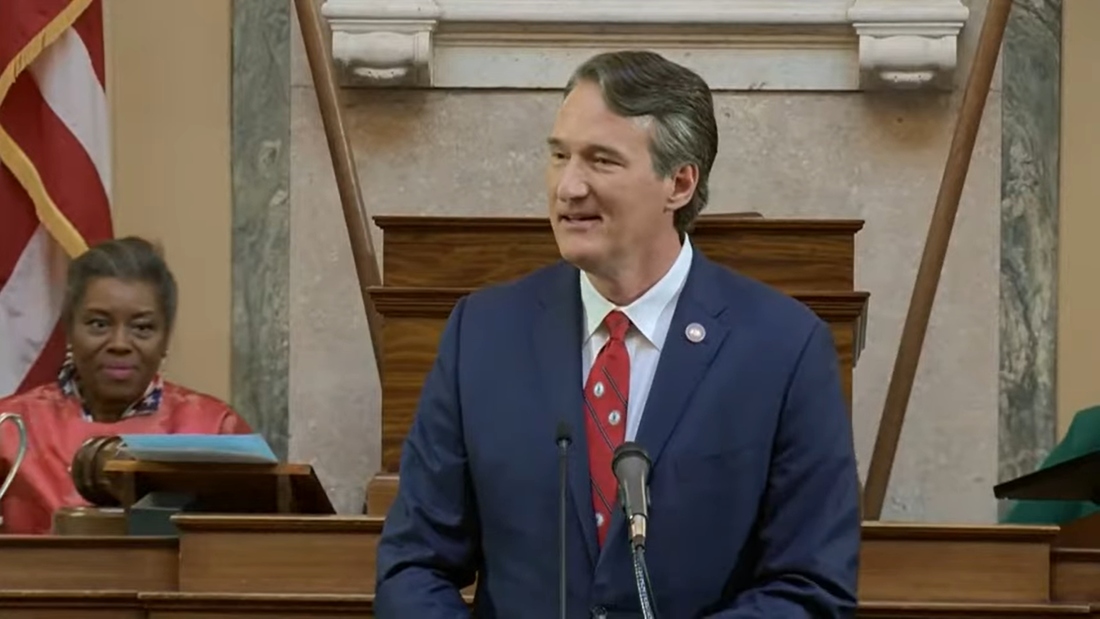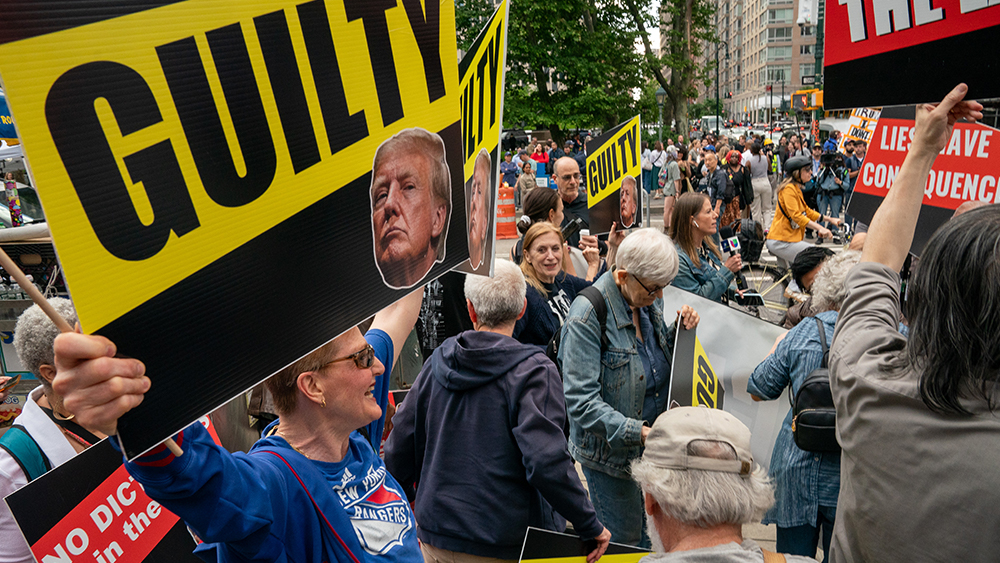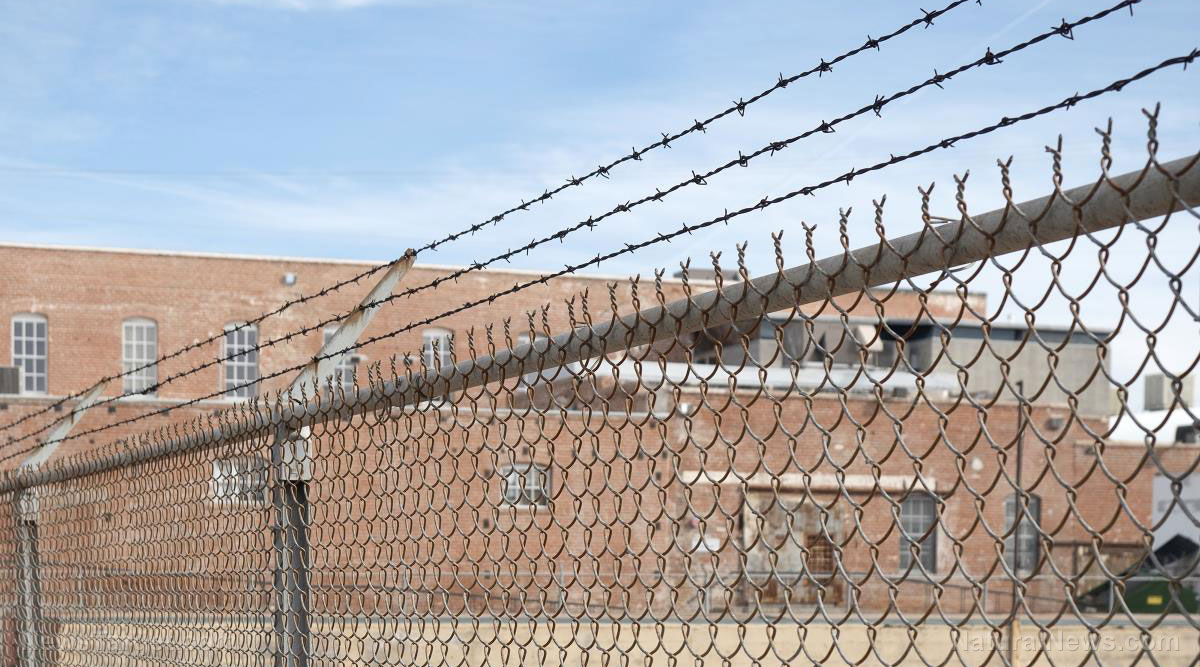 Parler
Parler Gab
Gab
EV mandate falling apart as Americans seek freedom of choice
The mandate, originating from the California Air Resources Board, was set to take effect January 1, 2025. Using the Clean Air Act, the Environmental Protection Agency (EPA) set out to apply California’s EV mandate for all 50 United States. The fascist scheme uses stringent emissions standards to punish automakers for creating gasoline and diesel-powered engines. The coercive schemes also provide credits to automakers when they develop the government-mandated EVs. Virginia Governor Glenn Youngkin declared the state’s independence from these crony EV mandates. “Once again, Virginia is declaring independence – this time from a misguided electric vehicle mandate imposed by unelected leaders nearly 3,000 miles away from the Commonwealth,” said Youngkin. “The idea that government should tell people what kind of car they can or can’t purchase is fundamentally wrong. Virginians deserve the freedom to choose which vehicles best fit the needs of their families and businesses. The law is clear, and I am proud to announce Virginians will no longer be forced to live under this out-of-touch policy.” Under the federal government’s Clean Air Act, Congress stipulates that motor vehicle emissions standards should be governed by federal law to prevent inconsistencies in requirements faced by auto manufacturers across different jurisdictions. Section 209 of the Act specifically prohibits states from establishing their own standards related to emissions control for new motor vehicles, leaving the responsibility of setting nationwide standards to the EPA. However, despite Section 209, Section 177 of the statute does allow states meeting certain criteria to petition the EPA for a waiver from federal standards if they can demonstrate that their own standards would offer equivalent protection for public health and welfare. If granted, compliance with the state's standards would be considered equivalent to compliance with federal standards.California Resources Board tries to convert all new car sales to EVs by 2035
In 2012, the California Air Resources Board (CARB) introduced the Advanced Clean Cars Program, combining regulations on greenhouse gases and low-and zero-emission vehicles for the years 2015-2025. The program aimed to reduce emissions from motor vehicles over time by decreasing the sale of new gas-powered vehicles. The program established a credit system where vehicle manufacturers earn credits for each zero-emission vehicle sold, and mandated increasing zero-emission credit requirements over time. By 2025, 22 percent of all new vehicles in California were required to be zero emission vehicles. CARB sought and obtained a waiver from the EPA for their program in 2013, pushing other states to implement it. In 2022, CARB introduced Advanced Clean Cars Program II for the years 2026-2035. The updated program sets even stricter emissions standards and aims for all new passenger cars, trucks and SUVs sold in California to be zero emissions by 2035, effectively banning the sale of non-electric vehicles from that year onward. Auto makers who did not comply would be faced with a $20,000 fine per vehicle sold, but these fines were scheduled to pass on to the dealers and consumers, who are engaged in the actual transactions. That said, only nice percent of vehicles sold in Virginia in 2023 were EVs. Falling short of the EPA’s mandate, consumers could have faced hundreds of millions of dollars in penalties. Small auto dealers, unable to shoulder the burden of these mandates, would have to shut down. Thankfully the tide is turning on this issue, so freedom of choice and innovation can make a comeback in the automotive industry. Sources include: Whatsupwiththat.com OAG.states.va.us [PDF]6 EVENTS most Democrats and Liberals would CHEER ON if they were happening right now
By S.D. Wells // Share
Israel releases Palestinian politician after 8 months in prison
By Richard Brown // Share
Report: Ukraine Communications Group is the latest iteration of the “Ministry of Truth”
By Kevin Hughes // Share
Priest gets one-year sentence in French prison for molesting 7 underage boys
By Belle Carter // Share
Governments continue to obscure COVID-19 vaccine data amid rising concerns over excess deaths
By patricklewis // Share
Tech giant Microsoft backs EXTINCTION with its support of carbon capture programs
By ramontomeydw // Share
Germany to resume arms exports to Israel despite repeated ceasefire violations
By isabelle // Share










